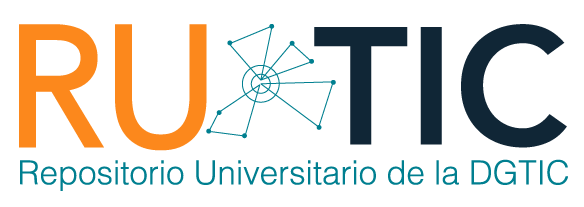| dc.coverage.spatial | MX | |
| dc.date.accessioned | 2018-06-28T05:26:24Z | |
| dc.date.available | 2018-06-28T05:26:24Z | |
| dc.date.issued | 2014-06-01 | |
| dc.identifier.uri | https://ru.tic.unam.mx/handle/123456789/2226 | |
| dc.description | Tema del mes | |
| dc.description.abstract | Las enfermedades metabólicas (EMet) son un problema de salud pública y México es uno de los países con prevalencia más elevada. En los últimos años se han identificado varios polimorfismos asociados al riesgo para desarrollar EMet. El conocimiento de la base genética de la enfermedad está evolucionando gracias a los avances tecnológicos y a la capacidad de reunir grandes colecciones de pacientes. Idealmente, en un futuro se incluirán en el algoritmo pronóstico del “riesgo de EMet” marcadores genéticos que incidan en la estratificación del paciente con EMet, predicción de la gravedad de las manifestaciones clínicas y definición de la terapia para cada uno de los pacientes. Actualmente se están identificando polimorfismos que son muy frecuentes en población de origen amerindio, como la variante R230C del gen ABCA1 y un haplotipo en el gen SLC16A11, fuertemente asociados con bajos niveles de colesterol HDL, obesidad y diabetes mellitus tipo 2. La medicina personalizada seguirá mejorando a medida que la lista de marcadores y la identificación de interacciones gen-gen aumenten. Por todo lo anterior, es evidente la imperiosa necesidad de entender cómo estos polimorfismos cambian la biología molecular y celular del metabolismo y predisponen al desarrollo de las diferentes EMet. | es_MX |
| dc.description.abstract | Metabolic diseases are a major public health and Mexico is one of the countries with the highest prevalence. Recently, have been identified several polymorphisms associated with risk for developing metabolic disorders. Knowledge of the genetic basis of the disease is improving due to technological advances and the ability to raise large collections of patients. It is possible that soon a "metabolic disorders risk" prognostic algorithm will include genetic markers for patient stratification, prediction of disease manifestations and definition of targeted therapy. Currently are being identified polymorphisms that are much more common in individuals with Native American ancestry than in other populations, such as R230C variant in the ABCA1 gene and a haplotype in the SLC16A11 gene, strongly associated with low levels of HDL cholesterol, obesity, and type 2 diabetes. Personalized medicine will continue to improve as the list of number of markers and identification of gene-gene and gene-environment interactions increase. It is clear the urgent need to understand how these polymorphisms change the molecular and cell biology of the metabolism pathways that predispose to the development of the different metabolic diseases. | en |
| dc.format | html | |
| dc.format | application/pdf | |
| dc.format.extent | 3.3 MB | |
| dc.format.extent | 1.35 MB | |
| dc.language | spa | |
| dc.publisher | Universidad Nacional Autónoma de México. Dirección General de Cómputo y de Tecnologías de Información y Comunicación. Revista Digital Universitaria | |
| dc.relation.isformatof | http://www.revista.unam.mx/vol.15/num6/art44/art44.pdf | |
| dc.relation.ispartof | http://www.revista.unam.mx/index_jun14.html | |
| dc.rights | openAccess | |
| dc.source | Revista Digital Universitaria (1607 - 6079). Vol. 15, No. 6 (2014) | |
| dc.subject | Metabolismo -- Trastornos | |
| dc.title | Genómica de las enfermedades metabólicas | es_MX |
| dc.title.alternative | Genomic of metabolic diseases | en |
| dc.type | article | en |
| dc.subject.keywords | Enfermedades metabólicas, Enfermedades crónicas-degenerativas, Obesidad, Diabetes, Síndrome metabólico, Metabolic diseases, Metabolic syndrome, Obesity, Hypertension, Polymorphism, Genomic | |
| dc.identifier.url | http://www.revista.unam.mx/vol.15/num6/art44/ | |
| dc.creator | LORENA SOFIA OROZCO OROZCO | |
| dc.creator | ANGELICA GRACIELA MARTINEZ HERNANDEZ | |
| dc.creator | FRANCISCO MARTIN BARAJAS OLMOS | |
| dc.rights.url | http://creativecommons.org/licenses/by-nc-sa/4.0 |
Files in this item
This item appears in the following Collection(s)
COMPARTE
BÚSQUEDA
Escriba el texto a buscar en DSpace
CONTACTO
El Repositorio Universitario de la DGTIC se edita en la Dirección General de Cómputo y
de Tecnologías de Información y Comunicación (DGTIC), de la Universidad Nacional Autónoma de México (UNAM)
Circuito Exterior s/n, Ciudad Universitaria, Coyoacán, C.P. 04510, México, D.F
Tel: +(52) (55) 56228166 Email: rutic@unam.mx









 ¿Qué es un repositorio...?
¿Qué es un repositorio...? ¿Qué beneficios obtengo...?
¿Qué beneficios obtengo...? ¿Qué tipo de recursos...?
¿Qué tipo de recursos...? Preguntas frecuentes
Preguntas frecuentes